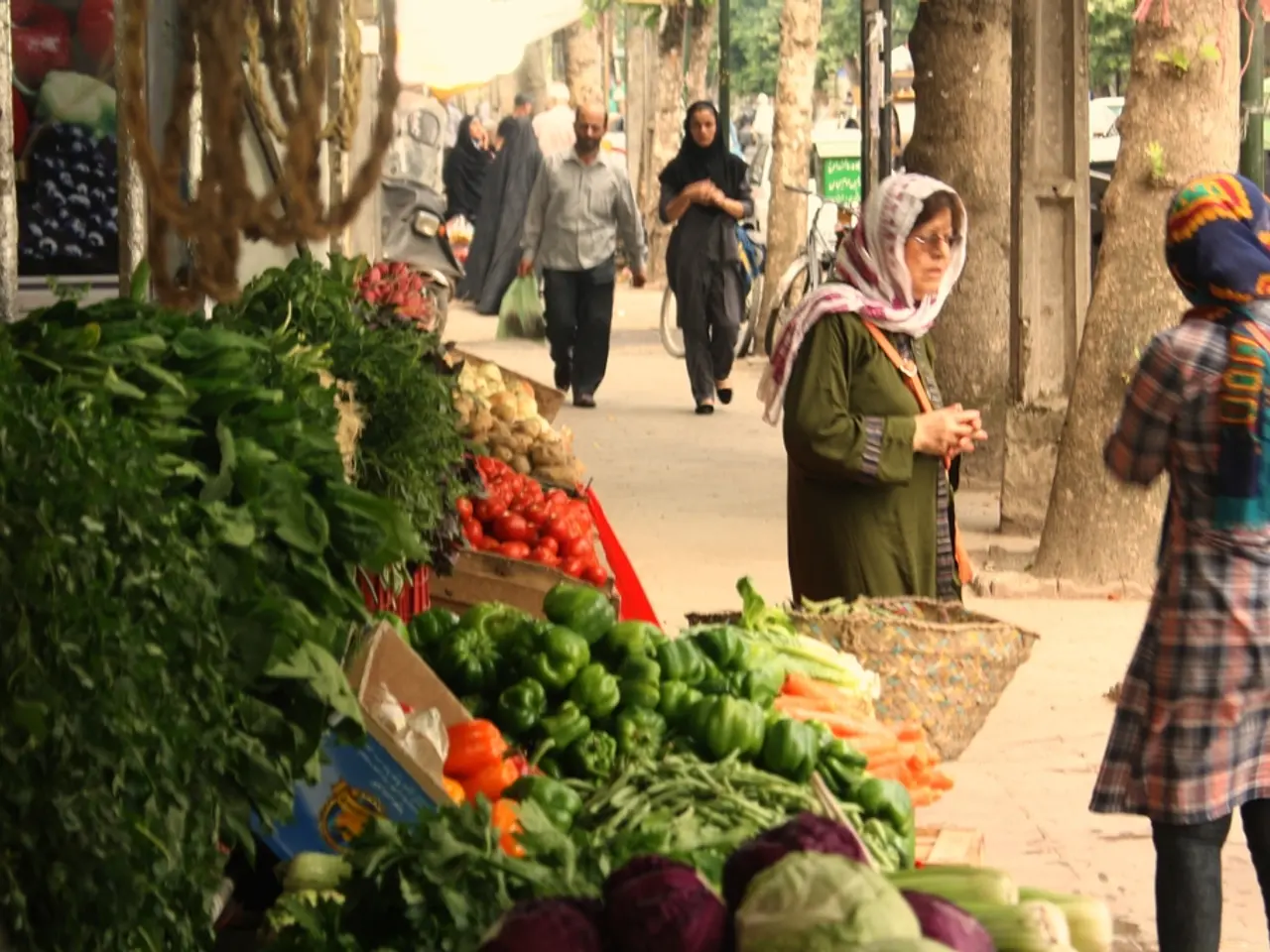"Striving to Uplift Human Worth"
In the heart of Montreal, a unique Canadian project is taking root, transforming city-owned land into a thriving organic vegetable garden. Led by Regroupement Partage, the project aims to expand and replicate across Quebec, addressing food insecurity among low-income residents.
Audrey Renaud, the general director of Regroupement Partage, dreams of growing different types of food in various regions. She envisions root vegetables in Montreal, wheat in the MRC of L'Assomption, and fruits in Quebec. Currently, only 5.5 hectares are maintained out of a possible 26 hectares, with work by the City of Montreal expected to begin soon to drain and prepare these agricultural lands.
Thousands of families are already benefiting from the project, receiving local products from the Cap-Saint-Jacques farm. The vegetables, grown in a deer-proof garden, greenhouse, and fields, are so fresh that they still have "a little bit of dirt on them." Last year, Regroupement Partage distributed over 1 million servings of fresh organic vegetables to Montreal families.
The goal of the project is noble: to give people their dignity back, emphasising that lack of money should not mean receiving leftovers. The organization, which is also responsible for the Backpack Operation, does not receive any provincial government subsidies.
The project's success is a testament to community commitment and innovative design. It is similar to municipalities buying buildings to create affordable housing, managed by community organizations. The unique urban farming project is being considered as a potential model for creating a "parallel food system" in other cities.
To replicate the project, key strategies include leveraging available urban spaces, integrating sustainable and efficient growing methods, and fostering local cooperative or community-led management models. For instance, the IGA Extra Famille Duchemin grocery store in Montreal has operated a 25,000 sq. ft. rooftop garden since 2017, organically producing various vegetables and honey.
Other cities can identify and utilise underused urban spaces, incorporate sustainable growing technologies, develop community cooperatives or partnerships, promote educational programs and training, leverage municipal policies and incentives, and create direct sales or distribution channels.
However, challenges remain. The Share Group, as Regroupement Partage is known, aims to increase its production but faces challenges due to lack of provincial government subsidies and the unsuitability of a large part of the fields left by the former owner. The organisation's non-profit status prevents it from saving up to buy a warehouse, but it hopes to find a partner willing to share its facilities.
Despite these challenges, the project's impact is undeniable. The vegetables grown on the city-owned land are distributed for free to the most needy in the metropolis, helping to address the 90% increase in requests for emergency food since 2019, according to Food Banks Canada.
As more cities embrace urban agriculture, they can build resilience against supply chain disruptions, reduce food insecurity, and strengthen community ties around food sovereignty. The growing movement toward embedding agriculture within the urban fabric offers hope for a sustainable and equitable food system.
References:
- Montreal grocery store's rooftop garden
- Urban agriculture co-operatives
- GoodLeaf Farms
- Parallel food system
- Urban agriculture in Quebec
- The unique urban farming project in Montreal, a parallel food system, aims to expand across Quebec, addressing food insecurity among low-income residents.
- Audrey Renaud dreams of growing various types of food in different regions, from root vegetables in Montreal to fruits in Quebec.
- The project, led by Regroupement Partage, uses organic growing methods and grows vegetables in deer-proof gardens, greenhouses, and fields.
- Last year, the organization distributed over 1 million servings of fresh organic vegetables to Montreal families, emphasizing that lack of money should not mean receiving leftovers.
- To replicate the project, cities can leverage available urban spaces, integrate sustainable growing methods, and foster local cooperative or community-led management models.
- One successful example is the IGA Extra Famille Duchemin grocery store in Montreal, which operates a 25,000 sq. ft. rooftop garden, organically producing various vegetables and honey since 2017.
- As more cities embrace urban agriculture, they can strengthen community ties, reduce food insecurity, and build resilience against supply chain disruptions, moving towards a sustainable and equitable food system.




